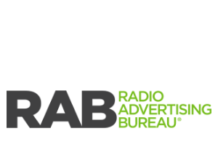
State Broadcasting Associations hope so and New Jersey Broadcasters Association President Paul Rotella has written a letter on behalf of all associations urging the new Congress to keep the pressure on. In the letter to Senate majority leader Mitch McConnell and minority leader Dick Schumer, Rotella is asking the Congress to restore the integrity of The FCC’s licensing system by passing PIRATE Act, without changes, swiftly. Here’s Rotella’s entire letter.
Dear Leaders McConnell and Schumer:
As you may know, the NJBA, along with all of our sister broadcast associations across the nation, representing local, over-the-air broadcast stations in all 50 States, the District of Columbia and the Commonwealth of Puerto Rico, urge your swift consideration and passage of the Preventing Illegal Radio Abuse Through Enforcement (PIRATE) Act (H.R. 5709). The bi-partisan PIRATE Act passed the House of Representatives unanimously and would provide the Federal Communications Commission (FCC) with critical new enforcement measures to combat pirate radio operations.
For years unauthorized pirate radio stations have harmed communities across the country by interfering with licensed stations’ abilities to serve their listeners, undermining the Emergency Alert System, interfering with airport communications and posing direct health and safety risks. The time has come to take significant steps to resolve this vexing problem.
The PIRATE Act gives the FCC additional tools to address the growing pirate radio problem. It provides the authority to levy increased fines up to $100,000 per violation and $2,000,000 in total. Upon prior notice, it holds liable persons, including property owners, who “knowingly” facilitate illegal pirate operations. The PIRATE Act streamlines the enforcement process and requires the FCC to conduct pirate radio enforcement sweeps in cities with a concentration of pirate radio stations. Finally, the PIRATE Act would create a database of all licensed radio stations operating in the AM and FM bands as well as those entities that have been subject to enforcement actions for illegal operation.
We are reaching the point where illegal pirate stations undermine the legitimacy and purpose of the FCC’s licensing system to the detriment of listeners in communities across the country. The PIRATE Act will help the FCC restore integrity to the system. For these reasons, local broadcasters across our great nation fully support the PIRATE Act and urge its swift passage without changes.
Thank you for your thoughtful consideration of the above request and my very best to you and yours for a healthy and happy Thanksgiving!
Most Respectfully,
Paul S. Rotella, Esq.,
President & CEO







On Jan 3, 2019 the PIRATE Act will officially die with all the other lame bills. The so called and worthless bill would cost Americans an additional $31 million estimated and wouldn’t do a single thing more then what Gov FCC powers already have power to do. Since the FCC is squeezing out minorities and can’t play by it’s own rules to begin with, I say let the bill die.
What Congress needs to do is to break up the mega groups, including the noncommercial ones (e.g., EMF) and make those frequencies available to those who really want to serve their communities. The nature of pirate radio changed drastically after the 1996 Telecom Act was passed and a handful of companies began gobbling up station after station. Pre-1996, most pirates were hobby-type operations run by high school and college kids who were interested in broadcasting and either did not like the programming on their local stations or could not find a job at a local licensed station. These pirates were noncommercial and usually operated in or near the AM band or just above the 40 meter ham band. Nowadays, most pirate operations are on FM and operate commercially. In places such as New York and Miami, they are usually ethnic stations that often serve communities that are ignored by the corporate stations. Want to get rid of the pirates? Open up the airwaves to small businesses and minorities who are now being shut out by that obnoxious auction system introduced under the 1996 Telecom Act. Auctions grant frequencies to those having the deepest pockets, not those who would best serve their communities.